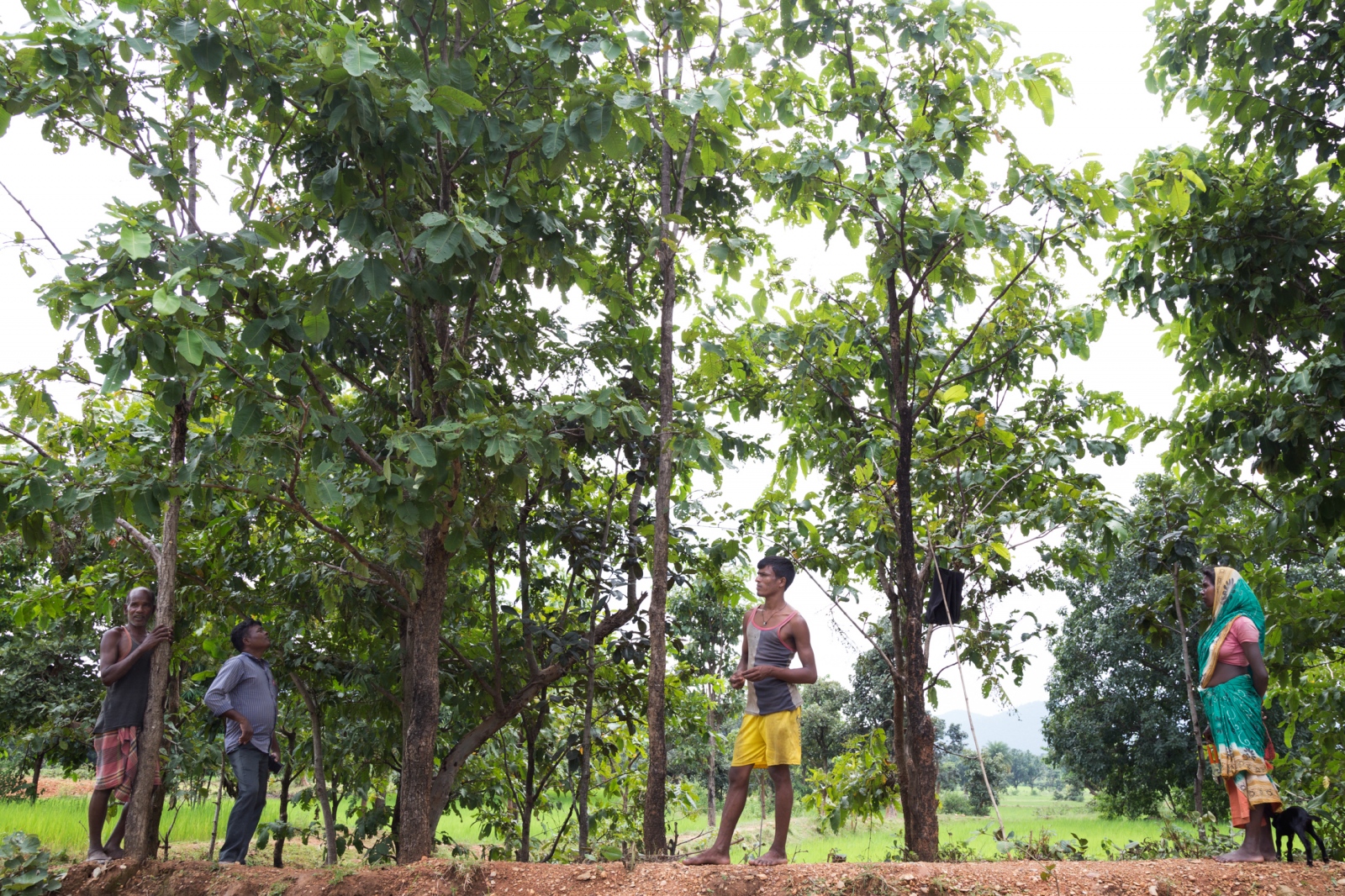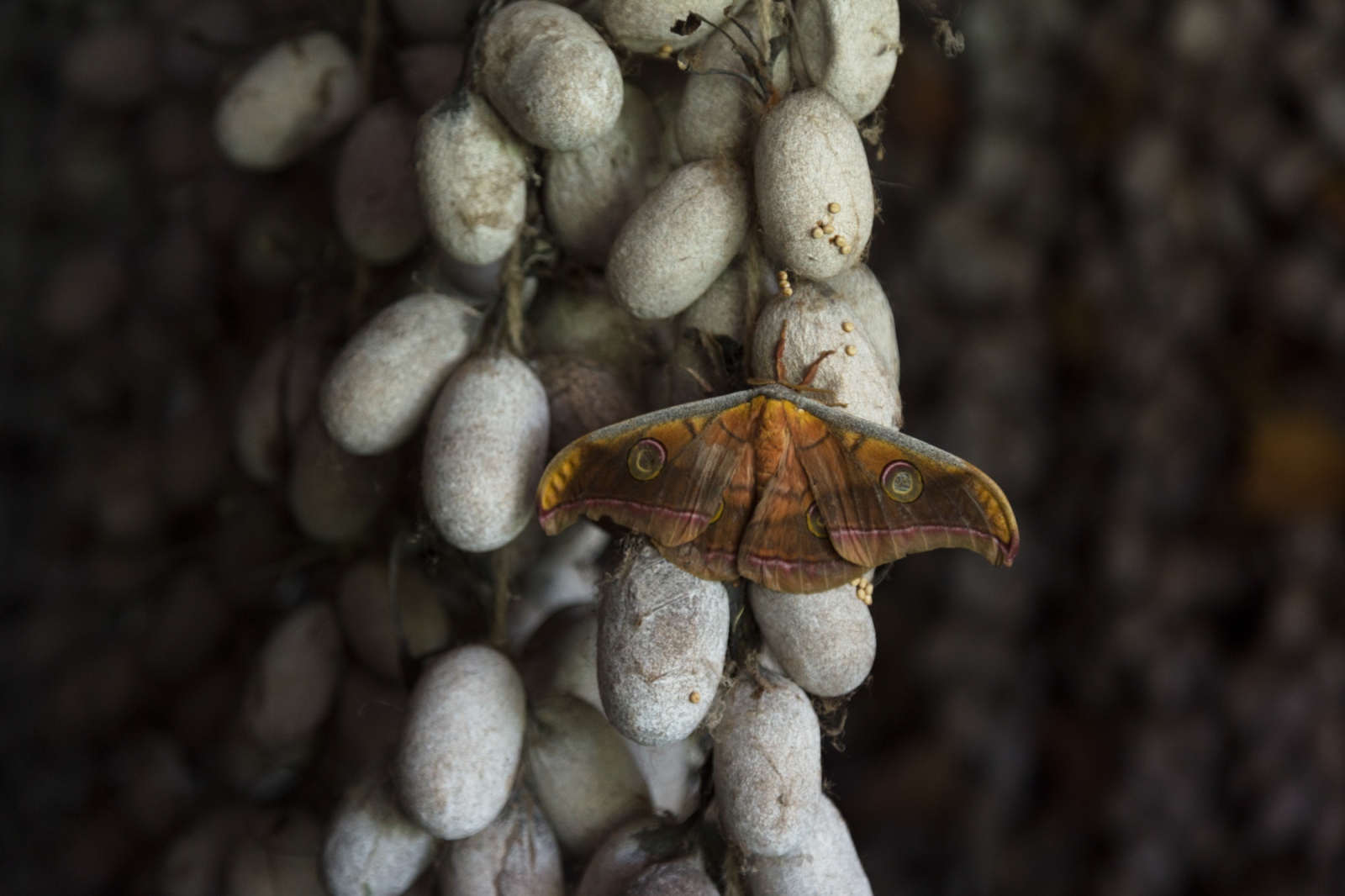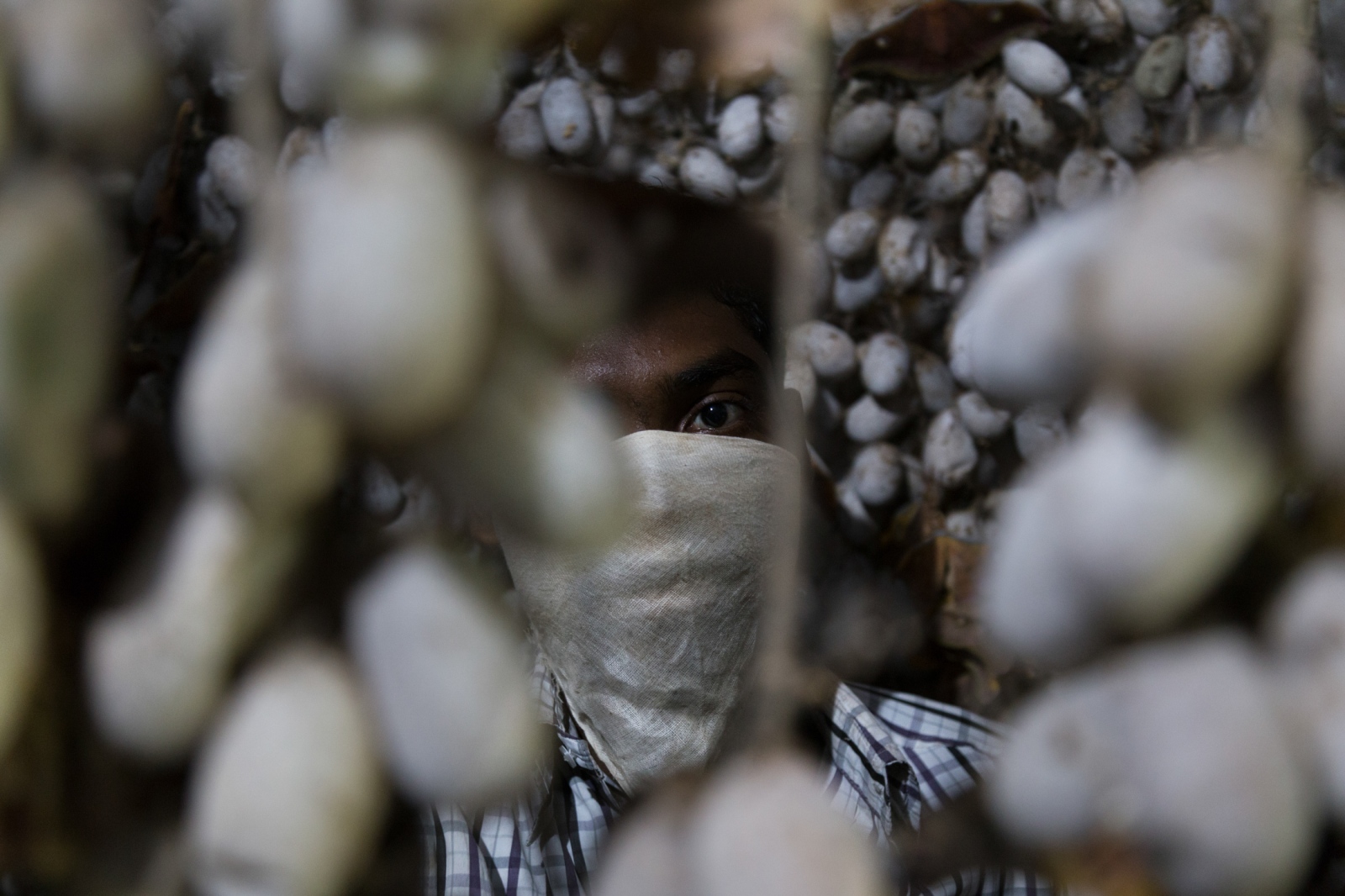Private Story
Tasar
A huge part of the rural population is trained and involved in various parts of the process of producing silk from breeding to extraction to reeling and finally producing the silk products in the household looms. The breeding of the insect mostly takes place in Saraikela and Kharsawan districts whereas the reeling takes place in various households across the state. Breeding happens twice a year, once during spring, February- April and once before the winter hits during September- October. Reeling and weaving take place throughout the year. Bhagaiya and Godda, two small towns on the border of Jharkhand and Bihar houses the most number of looms in the state. When one walks through these places one can hear the sound of clicks as the weavers pedal the loom and weave some of the finest pieces of clothing in the country.The reeling process, i.e., the extraction of threads from the cocoon is mostly done by the women folk which has empowered them and made them financially and socially independent.
The production of Tasar silk has weaved an entire ecosystem in rural Jharkhand which has helped in eliminating to some extent the widespread social, economic and political divide that has otherwise plagued the state since time immemorial.
























































